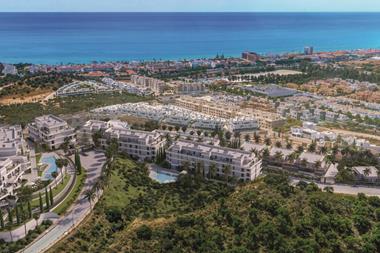The decision by the German constitutional court to overturn the controversial residential rent cap introduced last year by the city of Berlin creates legal clarity and could lead to an uptick in investment activity, according to institutional residential investors.
Listed property company Vonovia will resume projects in Berlin “immediately” to protect the climate and reduce CO2 emissions, a spokeswoman for the company said, calling the ruling “logical”.
And the decision by Germany’s top court ultimately supports Deutsche Wohnen’s goal to build a portfolio of climate-neutral buildings by 2040 and creates security to plan new investments, a spokesperson said.
The German federal states are not allowed to legislate on the level of rents as the matter has already been regulated at federal level, according to the constitutional court.
Patrizia welcomed the decision of the courts because it provides “legal certainty” for investors and tenants, chief urban economist Marcus Cieleback said.
Legal certainty will also lead to an increase of construction activity, with the appropriate political support, he added.
Phoenix Spree Deutschland welcomes the court ruling and will resume its reversionary rental strategy as a result. Investments into residential properties in Berlin should overall restart, it added in a statement.
For Florian Martin, managing director at KGAL Investment Management, the ruling has significant implications for residential investors.
“It is to be welcomed in principle as the law was an overly simplistic and largely ineffective tool in solving Berlin’s housing problem,” Martin said, adding that only a sizable increase in available housing through construction activity and investment can ultimately solve this issue.
Berlin remains an attractive location for investments in residential real estate. Investors had perceived the rent cap as a blow to prospects of growth of the local residential market.
“We still regard Berlin as an attractive market for investments that enables reasonable, certainly not excessive, returns,” Cieleback said.
“Even with the rent cover in place, Berlin continued to be very attractive for investors in the multifamily-segment. With the rent cover gone, interest will increase further“ combined with positive economic and demographic development, said Jan Linsin, head of research at CBRE Germany.
A controversial law
The law to cap the rents, dubbed Berliner Mietendeckel, came into force in February last year, sparking debate about its effectiveness to improve affordability in the city and its potential for unintended consequences.
Berlin’s residents took to the street in protest against the decision of the constitutional court.
“The solution for rising rents and affordable housing is not more regulation, which – as in the case of Berlin – was inadequate and ultimately at the expense of tenants and has narrowed the market for rental apartments,” Cieleback said.
The creation of a stable framework, or the simplification of procedures, are necessary to build more without artificially increasing the costs for new living space, Cieleback added.
Real estate investors bear responsibility for creating and maintaining sustainable living conditions, according to Martin.
“This very much includes affordable, socially mixed and attractive residential properties that meet modern mobility, ecological and other needs. Even without a state-mandated rent cap, residential investors cannot afford to merely focus on maximum rental yields anymore,” he added.
The rent cap did not solve problems on the Berlin housing market and has led to increasing uncertainties for tenants, the spokeswoman for Vonovia said.
Vonovia will not demand tenants to pay back unpaid amounts of rent that resulted from the cap. Deutsche Wohnen will offer options ranging from one-off payments to instalments to repay rents.
Phoenix Spree Deutschland estimated that the amount of rent that could be claimed from tenants was approximately €1.8m.


















